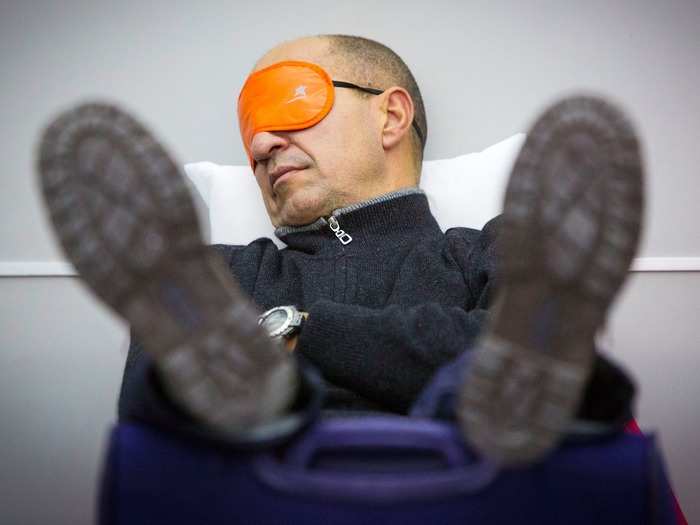9 ways to boost your intelligence by playing video games
People who play action-based games make accurate decisions 25% faster.

People who play video games have more control over their dreams.

Video games give people more control over their dreams and decrease nightmares, according to psychological research out of Grant MacEwan University in Canada, described in LiveScience.
A few studies have shown that gamers are much more likely to be lucid dreamers, which means they can consciously control what's happening in their dreams.
Psychologists think that this may be related to the "practice" that gamers have in inhabiting an alternate reality.
Additionally, this seems to also to provide some protection from and even control over dreams that would qualify as nightmares, especially for men.
Video games can make us better people.

Slow-moving strategy games can change our thinking behavior so that we can learn to make wiser, more ethical decisions in real-life scenarios.
That's the idea behind Quandary, a game that places human colonists on the Planet Braxos and requires the player, or captain, to help work out dilemmas among the settlers.
Scot Osterweil, creative director at MIT’s Education Arcade explained on Boston.com: "We don’t believe that playing the game will automatically help players take better perspectives in their own lives, but we think the game represents a playful way of introducing ideas that can be further developed through reflective conversation with others, and through additional activities provided on the website.
Video games improve vision.

Another study led by Daphne Bavelier of the University of Rochester, showed that video games improve vision by making players more sensitive to slightly different shades of color, known as contrast sensitivity.
People who played action-based video games — particularly first-person-shooter games — were 58% better at perceiving fine differences in contrast, the researchers said.
"When people play action games, they're changing the brain's pathway responsible for visual processing," Bavelier said in a statement. The training might be helping the visual system to make better use of the information it receives.
Video games can improve memory, focus, and multitasking ability in older adults.

A video game called NeuroRacer that involves swerving around cars while picking out road signs at the same time was found to "improve the short-term memory and long-term focus of older adults," The New York Times reported, citing a study published in the journal Nature.
In the study, a group of adults between the ages of 60 and 85 were recruited to play the game for 12 hours over a month. Six months after playing the game, the older adults were better at multitasking, retained more information in a short period of time, and had stronger attention skills.
Surgeons improved their laparoscopic skills by playing video games.

Playing video games on the Nintendo Wii improved skills needed for laparoscopic surgery, a procedure in which a thin tube with a camera is inserted into the abdomen to see organs on a screen, instead of cutting patients wide open.
The study, published in the journal PLOS One, found that doctors who spent one month playing either Wii Tennis, Wii Table Tennis, or a balloon warfare game called High Altitude Battle performed better in simulated tasks designed to test eye-hand coordination and movement precision.
The Nintendo Wii "may be adopted in lower-budget institutions or at home by younger surgeons to optimize their training on simulators before performing real procedures," the researchers concluded.
Children with dyslexia had better reading ability after playing video games.

A small study in the journal Current Biology found that playing action video games helped children with dyslexia read faster and with better accuracy.
Twelve hours behind the controller "improved children’s reading speed, without any cost in accuracy, more so than one year of spontaneous reading development and more than or equal to highly demanding traditional reading treatments," the researchers write.
By improving attention span, video games lead to better reading skills.
Pre-schoolers who play video games have better motor skills.

A small study from Deakin University in Australia found that children ages three to six who played interactive games, like Wii, had better object motor skills than those who played non-interactive games. This includes skills like kicking, catching, throwing, and bouncing ball.
It's likely that electronic games improve hand-eye coordination, but researchers also note that children who already have better object motor skills could have been more drawn to interactive games in the first place.
Video games can teach us about biological processes.

Video games are not just for entertainment.
They can also "help solve educational and scientific challenges," according to Stanford physicist Ingmar H. Riedel-Kruse, who designed a collection of action games to teach people about biological processes.
The games involve a single-celled organism contained inside a square fluid chamber. The player interacts or "controls" the living paramecia by applying electrical fields using a hand-held device that resembles a video game controller.
Since the reaction of the paramecia is real and not based on simulations, the games can teach players about micro-organismal behaviors, diffusion, and other biophysical concepts, the authors write in a study published in the journal Lab on a Chip.
They add: "Students might be motivated to discuss and understand the observed phenomena in order to identify other winning strategies in such games."
Popular Right Now
Advertisement